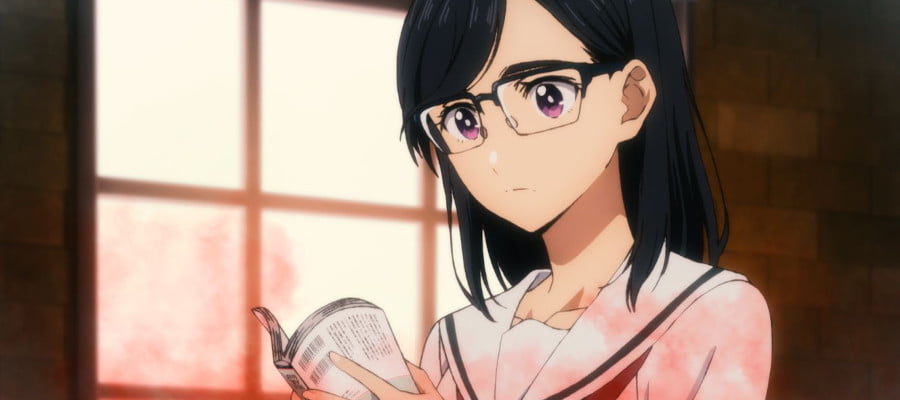I think if I was going to try and describe Summer Time Rendering from the top down there’s a challenge that involves grappling with how and where to start. The characters in it, for example, are consistently delightful. I find their struggles relatable and meaningful, I find their opinions and approaches justifiable and coherent. There’s no point where I found myself assuming a character made a stupid choice – there are definitely points where characters made a choice and it didn’t work out, but it was never because the choice itself looked like a bad choice with the information they had available to them.
But also, there’s the way that the technology of the now plays into the concept of the world. Like, this is a world with a ghost story in it, a narrative that builds itself around the idea of a horror landscape but the metaphor of that world is all full of signifiers of technology. Visuals have a glitchiness to them that looks like a digital camera, not an analogue one, when a person is copied, it requires a flash like an old device spooling up, and there’s talk about data storage limits, about the asset that is human information as an inherently satisfying thing to consume.
It’s not like the monsters work on digital rules, though, it’s much more that there’s a vision of reality that feels very Gen-X/Millenial to me, where if you’re trying to put together creepy weirdness, you do it out of a series of disconnected, historically lost glitches. The scratchiness in visuals, the keen of a camera heating up, the way that the monsters’ powers work like they’re dealing with an old fashioned chicken pox style illness, there’s all of these little signs not of a thing but of a time.
It’s horror reduced out of an experience, out of a time and a place and the things that made up that place, smeared out across generations of time. It’s about the trauma of pre-industrial famine and being discarded by the empire that owned you, it’s about the pain of World War 2, it’s about how hard people who have the most will fight to have more, even if what they have the most of is life itself.
The villain makes metaphor out of videogames. One videogame gets namedropped. It’s a videogame that came out in 1998. It also came out in 2020. Its release date is a plot point. There’s a strangeness to the idea of it, too, of how somehow you can feel young and old at the same time, a person bearing up under burdens of ancient traditions and cultural space while also feeling like your childhood summer holiday is just a few minutes ago, and how trying to hold onto that, the expectations and the failures of them all at once, will uh…
It’ll wreck your mind.
